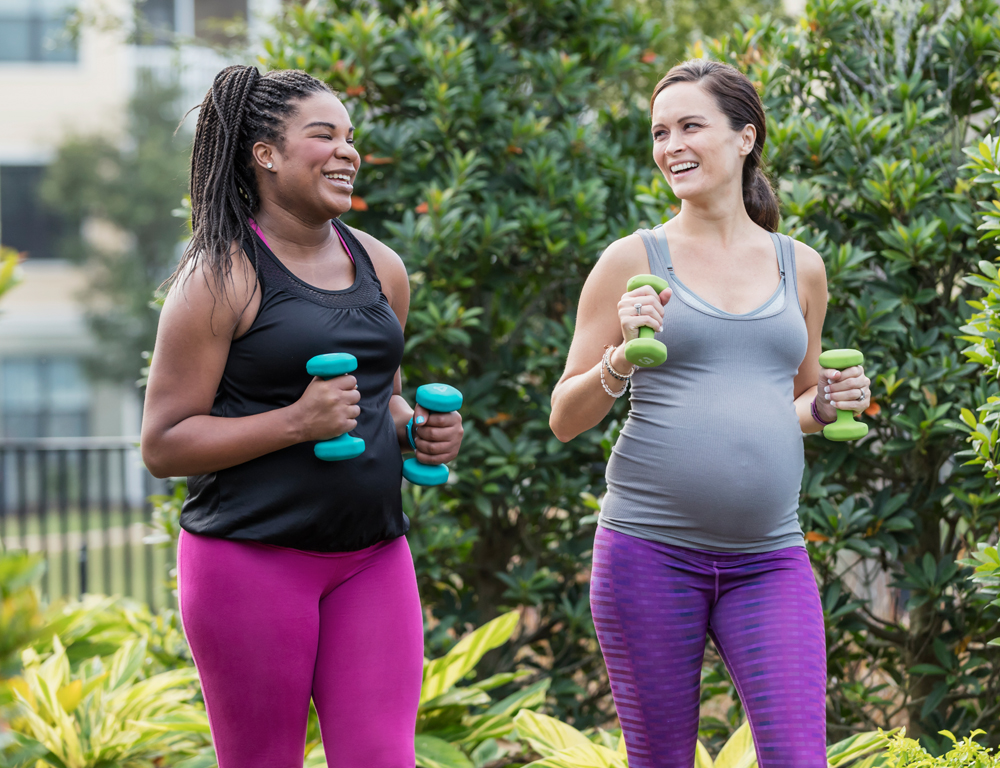The Medical Minute: Healthy babies start with healthy moms

Athletes invest hours practicing before a big game. Runners train for months leading up to a marathon. A mother-to-be should likewise prepare herself for the mental and physical rigor of pregnancy, labor and caring for a newborn.
Dr. Andrew Lutzkanin, a physician in the Department of Family and Community Medicine at Penn State Health, has a research interest in perinatal outcomes. He said the journey to motherhood taxes a woman in more ways than one.
Because about half of all pregnancies nationwide are unintended, he said he doesn’t always have a chance to do preconception counseling.
“Fortunately, most women of childbearing age are healthy,” he said. “And most pregnant women are motivated to make lifestyle changes, because they’re not just doing it for themselves.”
Lutzkanin said research shows a mother’s physical, spiritual and emotional health going into a pregnancy has an effect on outcomes for the child.
“You want to be as healthy as possible going into it,” he said. “Because you can’t bake brownies in a broken oven.”
His recommendations include:
- Eat a balanced, low-fat, low-cholesterol diet that incorporates nutrition from a variety of fresh fruits and vegetables and lean meats.
- Engage in cardio exercise that increases your heart rate for 20 minutes a few times each week to improve stamina and endurance.
- Stay well hydrated.
- Maintain a healthy weight to avoid increased risk for complications during pregnancy and delivery.
- Quit smoking.
- Take 400 mcg daily of folic acid (most women’s multivitamins contain this).
- Avoid drug and alcohol consumption, which can affect fertility as well as the baby’s health.
- Talk with your doctor about the best way to get any chronic medical conditions under control.
Adrienne Cray, an exercise physiologist with Penn State Health, teaches a Healthy Mama, Healthy Baby class where she focuses on teaching mothers-to-be about how to use their abdominal muscles correctly.
“When you are pregnant, your center of gravity shifts, and the extra weight can get things out of alignment,” she said. “Using your core muscles can help protect your back from pain, strain or injury.”
Cray said women can continue whatever level of exercise they were accustomed to before pregnancy until childbirth unless they no longer feel comfortable or their doctor recommends otherwise.
She teaches deep-breathing exercises to help women decrease their heart and breathing rates during moments of stress. “Whatever mom is feeling is definitely affecting the baby in utero as well,” she said.
Once the baby is born, Cray said exercise helps mothers lose pregnancy weight while carving out precious personal time to care for themselves: “It is not a magic pill, but it definitely helps with your energy level.”
Lutzkanin said medical professionals recognize they haven’t done enough to help mothers manage their mental health, particularly post-partum depression.
“Now, we are constantly screening for it, especially if there is a history,” he said. “Pregnancy is a stressful period with a lot going on, so we want them to get on a good regimen of medication and counseling before pregnancy if possible.”
The Medical Minute is a weekly health news feature produced by Penn State Health. Articles feature the expertise of faculty, physicians and staff, and are designed to offer timely, relevant health information of interest to a broad audience.
If you're having trouble accessing this content, or would like it in another format, please email Penn State Health Marketing & Communications.
